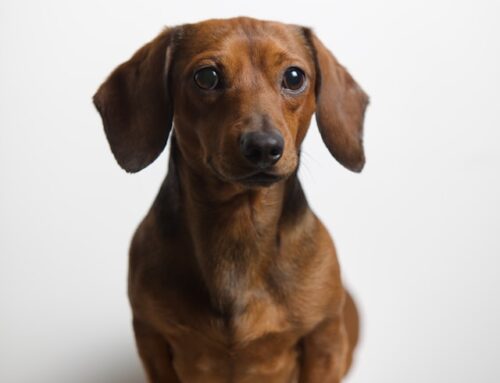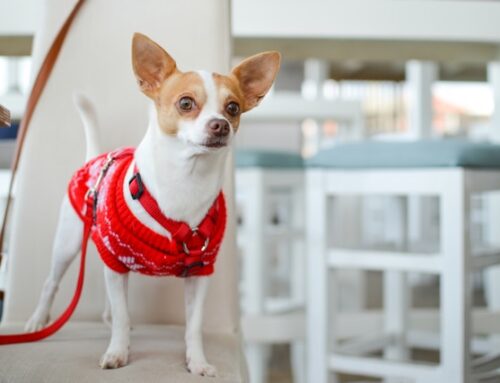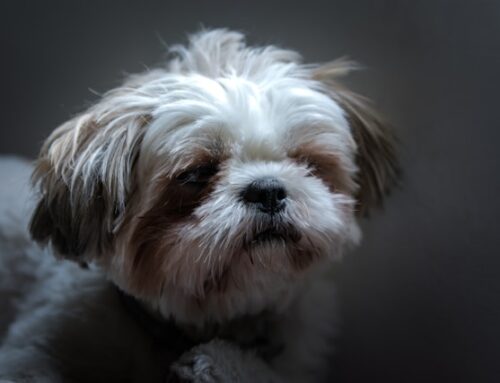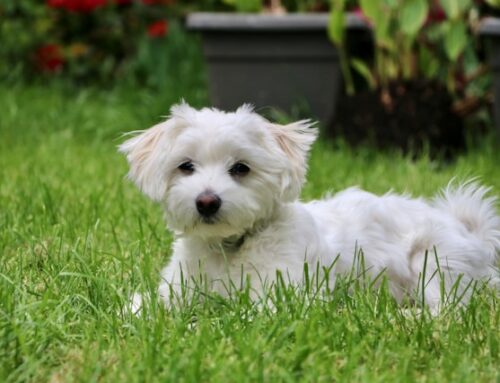Overview
Introduction: Dachshund vs Mini Dachshund
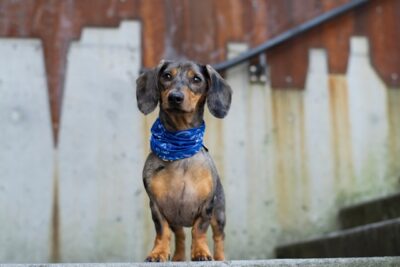
A Brief Overview of Dachshunds and Mini Dachshunds
Dachshunds, whether standard or miniature, are beloved for their distinctive appearance and lively personalities, originating from Germany. While standard dachshunds typically weigh 16 to 32 pounds, miniature dachshunds are smaller, making them popular for those seeking a compact companion.
Miniature dachshunds also tend to have longer lifespans compared to their larger counterparts. Both variations of this breed offer boundless energy and unwavering loyalty, providing endless joy and companionship to their owners.
When comparing Dachshund vs Mini Dachshund, these differences in size and lifespan are important factors to consider when choosing the right dachshund for you.
Purpose of the Comparison of Miniature and Standard Dachshunds
Comparing standard and miniature dachshunds offers valuable insights for prospective dog owners. By understanding differences in size, temperament, and care needs, individuals can make informed choices based on their lifestyle.
Whether choosing standard or miniature, each variation brings unique qualities, helping owners find the perfect companion to enrich their lives. When comparing dachshund vs mini dachshund, these insights can guide you in selecting the ideal dachshund for your home.

Breed Origins and History
Origins of Standard Dachshund
The standard Dachshund has its origins as a hunting dog, originally bred in Germany to hunt badgers and rabbits. Through careful breeding with other dog breeds, Dachshunds were developed to possess traits ideal for hunting underground, earning them the nickname “badger dog.”
Their unique physique and tenacious temperament were honed to meet a breed standard emphasizing their hunting prowess and adaptability. Recognized by organizations like the American Kennel Club, Dachshunds of all sizes are considered part of the same breed, with a rich history rooted in their role as skilled hunters.
Miniature Dachshund: How They Were Bred
Miniature Dachshunds were selectively bred from their standard counterparts to create a smaller variant of the breed. While sharing the same hunting dog heritage as standard Dachshunds, the miniature version was originally bred to pursue smaller game like rabbits.
Recognized by organizations like the American Kennel Club and specific breed clubs such as the Dachshund Club, miniature Dachshunds are considered a distinct yet integral part of the Dachshund breed family, prized for their compact size and unwavering hunting instincts.

Physical Characteristics
Size Comparison: Dachshund vs Mini Dachshund
When comparing the physical characteristics and size of Dachshunds and Mini Dachshunds, the latter stands out for its smaller stature. While both breeds share similar elongated bodies, Miniature Dachshunds typically have a shorter maximum height.
Bred specifically for their smaller size, Miniature Dachshunds often fall below the standard measurements of Dachshunds. Nonetheless, both breeds retain their signature features, making them beloved companions.
Body Proportions: Dachshund vs Mini Dachshund
When comparing the physical characteristics of Dachshunds and Mini Dachshunds, their height and length differ noticeably. Standard Dachshunds tend to be taller, some reaching several inches in height, while Miniature Dachshunds are shorter but still have longer proportions. Both breeds have long bodies and maintain their distinctive charm and playful personalities.
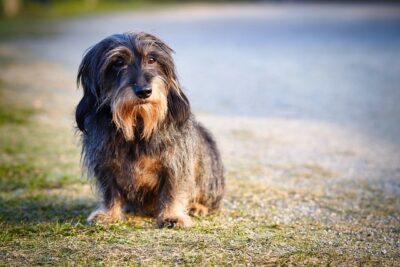
Coat Types and Colors: Dachshund vs Mini Dachshund
When comparing coat types and colors between Dachshunds and Mini Dachshunds, both breeds offer a variety of options. Whether standard or miniature, Dachshunds can have smooth, wirehaired, or longhaired coats, each with distinct characteristics. This diversity adds to the unique charm of both breeds, catering to different preferences among dog enthusiasts.
Temperament and Personality Traits
Common Traits of Standard Dachshund
Dachshunds are known for their courageous and determined temperament, stemming from their history as hunting dogs bred to hunting badgers and rabbits. Despite their small size, they possess a strong prey drive and require regular mental stimulation to stay happy and healthy. Engaging them in activities that mimic their natural instincts, such as scent games or interactive toys, helps fulfill their need for mental stimulation and prevents boredom.
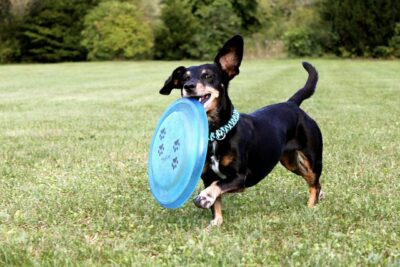
Personality of Mini Dachshund
Miniature Dachshunds typically exhibit a lively and affectionate personality. Despite their small size, they often display the same bold and confident demeanor as their larger counterparts.
Known for their playful nature and strong bond with their owners, miniature Dachshunds make delightful companions who thrive on attention and affection.
Behavioral Differences between Miniature and Standard Dachshunds
While both miniature and standard Dachshunds share many common traits, there are subtle behavioral differences between the two. Miniature Dachshunds often exhibit a slightly more energetic and playful disposition compared to their standard counterparts. Additionally, due to their smaller size, miniature Dachshunds may sometimes display a more assertive or feisty attitude in certain situations.
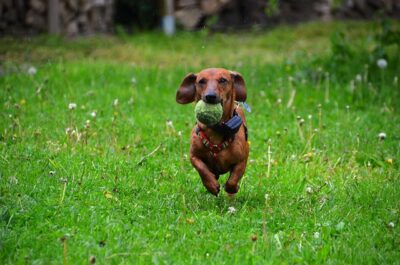
Exercise and Activity Needs
Exercise Requirements for Standard Dachshund
Standard Dachshunds have moderate exercise needs but benefit from regular activity to stay healthy. Their hunting instincts make walks and games enjoyable. Due to their tendency to gain weight, they may need slightly more exercise. Regular activity also fulfills their natural inclination to hunt and promotes overall well-being.
Activity Levels of Miniature Dachshund
Mini Dachshunds, despite their small size, are energetic and require regular exercise for their well-being. Daily walks, playtime, and interactive games are crucial to prevent boredom and maintain their happiness. Although they don’t need as much exercise as larger breeds, they still thrive on attention and activity, making them delightful companions for owners who prioritize their care.
Suitable Living Environments
Dachshunds and Mini Dachshunds thrive in diverse living environments, including apartments, suburban homes, or rural settings, given they receive proper exercise and mental stimulation. Access to safe outdoor areas for walks and playtime is vital, as they enjoy exploring. Regardless of size, a loving environment with ample opportunities for exercise and interaction is essential for their well-being.

Health Considerations
Common Health Issues in Standard Dachshund
Common health issues in standard Dachshunds include intervertebral disc disease (IVDD), which is a result of their long backs and predisposition to back problems. Additionally, they may be prone to obesity, dental issues, and joint problems such as hip dysplasia.
Regular veterinary check-ups, a balanced diet, and appropriate exercise can help mitigate these health concerns and ensure the well-being of standard Dachshunds. Early detection and proactive management are crucial in addressing and preventing potential health issues in this breed.
Health Concerns for Mini Dachshund
Miniature Dachshunds, like their standard dachshund counterpart, are prone to certain health concerns due to their unique body structure. They may be at risk for intervertebral disc disease (IVDD) and obesity, given their elongated backs and predisposition to gaining weight.
Regular veterinary check-ups, a balanced diet, and appropriate exercise are crucial in maintaining the health and well-being of miniature Dachshunds. It’s important for owners to be aware of these potential health issues and take proactive measures to prevent and manage them effectively.
Lifespan Comparison
The average lifespan or life expectancy of Dachshunds, whether miniature or standard, can vary based on several factors, including genetics, diet, and overall care. While the breed standard typically indicates a lifespan of around 12 to 16 years for both varieties, some studies suggest that miniature Dachshunds live longer than standard dachshunds.
However, individual circumstances and health considerations play a significant role in determining the lifespan of any dog, emphasizing the importance of providing proper care and attention throughout their lives.

Grooming Requirements
Coat Care for Standard Dachshund
Dachshund owners must be attentive to the grooming needs of their beloved pets, which vary depending on the coat variety. Standard smooth-haired Dachshunds require regular brushing to minimize shedding, while wire-haired Dachshunds benefit from occasional hand-stripping to maintain their unique coat texture. Longhaired Dachshunds necessitate more frequent brushing to prevent mats and tangles. Regardless of coat type, routine grooming sessions help keep Dachshunds healthy, comfortable, and looking their best.
Grooming Miniature Dachshund
Grooming a Miniature Dachshund involves attending to the specific needs dictated by their coat type. For wire-haired Miniature Dachshunds, regular brushing and occasional hand-stripping help maintain their distinctive coat texture and minimize matting.
Those with a long coat require more frequent brushing to prevent tangles and mats, ensuring their fur remains smooth and manageable. Regardless of coat variety, regular grooming sessions are essential for keeping Miniature Dachshunds comfortable, healthy, and looking their best.
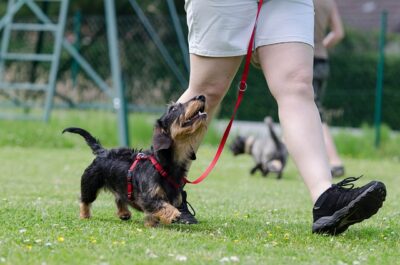
Training and Intelligence
Trainability of Standard Dachshund
Standard Dachshunds are known for their intelligence and independent nature, which can affect their trainability. While they can be stubborn at times, consistent and patient training methods, along with positive reinforcement, can yield successful results.
With proper training and socialization from an early age, Standard Dachshunds can learn commands and behaviors effectively, showcasing their intelligence and adaptability as a breed.
Teaching Miniature Dachshund Commands
Teaching commands to a Miniature Dachshund requires patience, consistency, and positive reinforcement. Despite their small size, Miniature Dachshunds are intelligent dogs and can quickly learn basic commands such as sit, stay, and come. Short training sessions tailored to their attention span are ideal, and using treats or favorite toys as rewards can help motivate them during training.
With gentle and consistent guidance, Miniature Dachshunds can become well-trained companions, showcasing their intelligence and willingness to learn
Problem-Solving Abilities
When comparing the problem-solving abilities of Miniature and Standard Dachshunds, both breeds demonstrate impressive intelligence and adaptability. Dachshunds, regardless of size, are known for their keen problem-solving skills, often finding creative solutions to challenges they encounter.
Whether it’s figuring out how to reach a treat or navigating through obstacles, Dachshunds showcase their resourcefulness and intelligence in various situations. Owners of both Miniature and Standard Dachshunds can appreciate their dog’s ability to think critically and solve problems independently.
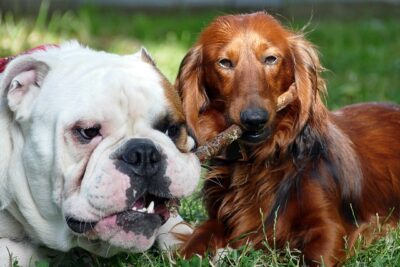
Socialization Needs
Interaction with Other Dogs
Both Miniature and Standard Dachshunds benefit from early and consistent socialization with other dogs. Exposing them to different canine personalities and sizes helps prevent fearfulness or aggression towards unfamiliar dogs in the future.
Positive interactions during puppyhood can contribute to developing well-rounded social skills in both Miniature and Standard Dachshunds, fostering healthy relationships with other dogs throughout their lives.
Behavior Around Humans
Both Miniature and Standard Dachshunds thrive on positive interactions with humans and benefit from early socialization to ensure they develop friendly and confident behaviors. Exposing them to various people, environments, and experiences from a young age helps prevent shyness or fearfulness towards humans later in life.
With proper socialization, both Miniature and Standard Dachshunds can become affectionate, well-adjusted companions, eager to engage with people of all ages
Handling Separation Anxiety
Miniature and Standard Dachshunds can be prone to separation anxiety, so it’s crucial to address their socialization needs early on. Gradually acclimating them to periods of separation and teaching them that being alone is okay can help prevent the development of separation anxiety.
Providing mental stimulation, exercise, and comforting routines can also help alleviate anxiety in both Miniature and Standard Dachshunds, ensuring they feel secure and content when left alone.
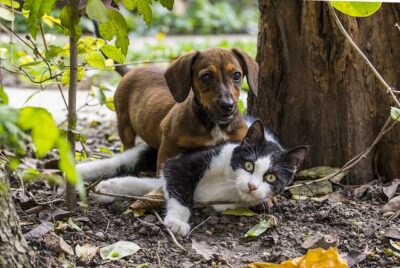
Compatibility with Families
Standard Dachshunds as Family Pets
Dachshunds are often excellent family pets, known for their affectionate nature and loyalty to their owners. Their playful demeanor makes them great companions for children, although supervision is necessary due to their small size.
With proper training and socialization, Dachshunds can integrate seamlessly into family life, bringing joy and companionship to all members of the household.
Miniature Dachshunds in Household Settings
Mini Dachshunds are wonderfully compatible with families, bringing their playful energy and affectionate personalities into household settings. Their small size makes them suitable for various living arrangements, from apartments to larger homes. With proper socialization and care, Mini Dachshunds can thrive as beloved family pets, providing companionship and joy to all members of the household.
Interaction with Children and Other Pets
Both Miniature and Standard Dachshunds generally interact well with children and other pets when properly socialized and supervised. Their playful nature and affectionate demeanor make them enjoyable companions for kids, although supervision is necessary due to their small size. With early socialization and consistent training, Dachshunds can form strong bonds with children and coexist harmoniously with other pets in the household.

Nutritional Requirements
Dietary Needs of Standard Dachshund
The dietary needs of a Standard Dachshund are similar to those of other dogs, but special attention should be given to their tendency to gain weight, which can exacerbate back problems.
A balanced diet with high-quality protein, essential fats, and controlled portion sizes is essential to maintain their overall health and weight. Additionally, owners should consult with a veterinarian to determine the appropriate feeding regimen tailored to the individual needs and activity level of their Standard Dachshund.
Feeding Miniature Dachshund
Feeding a Miniature Dachshund requires careful consideration of their small size and tendency to gain weight. A balanced diet with high-quality protein, essential fats, and controlled portion sizes is crucial to maintain their overall health and prevent obesity, which can exacerbate health issues like back problems.
Consultation with a veterinarian can help determine the appropriate feeding regimen tailored to the specific needs and activity level of the Miniature Dachshund.
Avoiding Obesity
Preventing obesity is crucial for both Miniature and Standard Dachshunds due to their susceptibility to back problems and other health issues. Feeding a balanced diet with appropriate portion sizes and limiting treats can help maintain their ideal weight. Regular exercise tailored to their size and activity level is also important in preventing obesity and promoting overall health and well-being for both mini and standard Dachshunds.

Travel and Outdoor Adventures
Traveling with Dachshunds
Dachshunds can be excellent travel companions, but they may require extra care during long car rides due to their backs. Ensure they have a comfortable, secure spot in the car and take regular breaks for bathroom breaks and stretching.
Mini Dachshunds on Outdoor Adventures
Mini Dachshunds may enjoy outdoor adventures such as hiking or camping, but be mindful of their smaller size and energy levels.
Bring plenty of water and snacks for breaks, and consider carrying them in a backpack or sling for longer hikes.
Safety Considerations
Regardless of breed, always prioritize your dog’s safety when engaging in outdoor activities. Keep them on a leash in unfamiliar areas, watch out for potential hazards such as wildlife or rough terrain, and protect them from extreme weather conditions.

Summary: Dachshund vs Mini Dachshund
Recap of Key Distinctions
In summary, Dachshunds and Mini Dachshunds have several differences in size, temperament, and care requirements.
Understanding these distinctions can help you make an informed decision when choosing the right breed for your lifestyle. When comparing dachshund vs mini dachshund, it’s important to consider these factors to find the perfect match for you.
Factors to Consider: Dachshund vs Mini Dachshund
Consider factors such as your living situation, activity level, and preferences in a canine companion when deciding between Dachshunds and Mini Dachshunds. Both breeds offer unique qualities and can make wonderful additions to the right family. When comparing dachshund vs mini dachshund, these considerations can help you determine which breed is the best fit for you.
Frequently Asked Questions (FAQs): Dachshund vs Mini Dachshund
- What are the differences between a Dachshund puppy and a Miniature Dachshund puppy?
- Dachshund puppies and Miniature Dachshund puppies share similar traits but differ in size. Miniature Dachshund puppies are smaller in stature compared to standard Dachshund puppies, making them suitable for owners seeking a more compact companion.
- How do Dachshunds vs Mini Dachshunds compare in size and weight?
- Standard Dachshunds typically weigh more and stand taller than Miniature Dachshunds. While standard Dachshunds weigh around 16 to 32 pounds, Miniature Dachshunds are generally lighter and stand shorter, with heights averaging around 5 to 6 inches.
- What are the differences between wire-haired and long-haired Dachshunds, both miniature and standard?
- Dachshunds come in various coat varieties, including wire-haired and long-haired. Wire-haired Dachshunds have a wiry, coarse coat, while long-haired Dachshunds have a soft, flowing coat. These coat types can be found in both miniature and standard-sized Dachshunds.
- How much mental stimulation do Miniature Dachshunds require compared to standard Dachshunds?
- Miniature Dachshunds may require slightly less mental stimulation compared to their standard counterparts due to their smaller size. However, both sizes benefit from mental enrichment activities to keep them mentally sharp and engaged.
- Is veterinary care different for Dachshunds vs Mini Dachshunds?
- Veterinary care for Dachshunds and Mini Dachshunds is similar and should include regular check-ups, vaccinations, and preventative measures for common health issues. However, owners should consider the specific needs of their dog’s size and coat type when seeking veterinary care.
- Do Miniature Dachshunds require enough exercise compared to standard Dachshunds?
- Miniature Dachshunds may require slightly less exercise compared to standard Dachshunds due to their smaller size. However, both sizes still need regular physical activity to maintain their health and prevent obesity.
- Are Miniature Dachshunds harder to train than standard Dachshunds?
- Training difficulty can vary depending on individual temperament and personality rather than size. While Miniature Dachshunds may have a reputation for being stubborn, consistent training methods and positive reinforcement can help both sizes excel in obedience training.
- How do the shoulder blades of Miniature Dachshunds differ from those of standard Dachshunds?
- The shoulder blades of Miniature Dachshunds are typically smaller and narrower compared to those of standard Dachshunds, reflecting their smaller size and stature.
- What are the coat varieties available in both standard and miniature Dachshunds?
- Both standard and miniature Dachshunds come in various coat varieties, including smooth coat, wire-haired, and long-haired. Each coat type has its own unique characteristics and grooming requirements.
- Are there any specific considerations for owners of Miniature Dachshunds vs standard Dachshunds?
- Many owners find that the smaller size of Miniature Dachshunds makes them more suitable for apartment living or for owners who prefer smaller breeds. However, both sizes of Dachshunds make loving and loyal companions when provided with proper care and attention.
Conclusion: Dachshund vs Mini Dachshund
In conclusion, choosing between a Dachshund and a Mini Dachshund ultimately depends on your lifestyle, preferences, and ability to meet their unique needs. Both breeds offer companionship, loyalty, and endless love to their owners, making them cherished members of the family. If you’re torn between a Dachshund vs Mini Dachshund, understanding their differences can help you make the right choice.
By understanding the differences outlined in this article, you can make an informed decision and welcome the perfect furry friend into your home. If you are looking for Dachshund puppies from reputable breeders, check out our selection of Dachshund puppies for sale in Florida and surrounding areas.

